Systematic intimidation, robberies, psychological and physical torture – these are the memories that russian occupiers left with the residents of Snihurivka in the Mykolaiv region, liberated on November 10. Valentyna Sokolovska, the spokesperson for the Snihurivka Journalists’ Union, shared with us the harrowing experiences of surviving eight months of occupation.

At the beginning of our conversation, Valentyna Yaroslavivna noted, ‘I don’t like to talk about the occupation.’
— On March 14, our town was subjected to a brutal bombardment. From March 15 to 17, russian forces passed through Snihurivka. Many believed that the russians were only interested in large coastal cities like Mykolaiv and Odessa and wouldn’t come to us. Of course, this was quite naive, but no one understood what they wanted. The idea of “joining” our purely Ukrainian region to russia seemed so absurd that no one believed the Russians could be planning it.
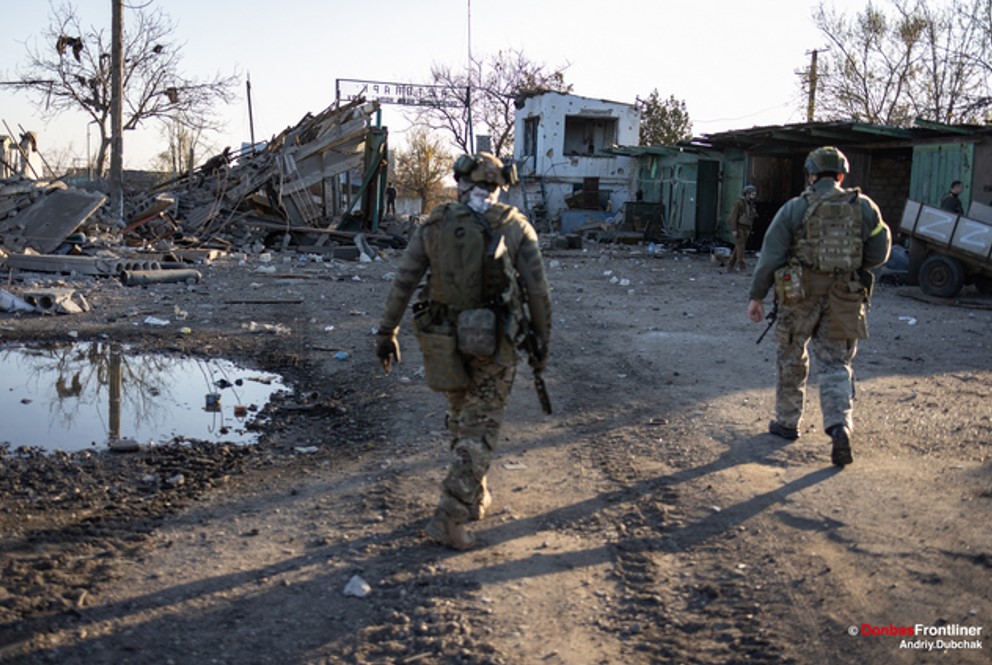
“A disturbing rumor spread: they are coming!”
On March 18, a disturbing rumor swept through the town: they are coming! For the residents of Snihurivka, this news was a shock.
Entering the town, russian military personnel began ransacking the houses of Snihurivka residents.
— Our family was lucky. Russian troops on armored vehicles moved, searching houses on both sides of the street. They didn’t say what they were looking for, but they ransacked everywhere: rooms, basements, attics, and even roofs. People assumed they were looking for weapons or Ukrainian defenders, — Valentyna Sokolovska recounted. — When they approached our house, they decided it had already been checked. During the occupation, they went through the houses again, claiming they were searching for their deserters. But, thank God, Russian boots didn’t step into our yard the second time.
Valentyna Yaroslavivna noted that in the first days of the occupation, many managed to leave the town. However, she and her husband, Volodymyr Fedorovych, decided not to abandon their home. Their son moved to the Ukrainian-controlled territory and, as long as possible, sent them parcels that helped them survive. Communication became increasingly difficult until it stopped altogether. During the occupation, neighbors helped the couple survive.
The editorial office of “Visti Snihurivshchyny” suffered significantly during the occupation, where russian military personnel lived for a while. They destroyed or took away everything inside the office, smashed windows, and stole the editorial car from the garage.
Fortunately, Valentyna Sokolovska did not suffer the fate of many other journalists who remained in the occupied territories, being kidnapped and tortured, forced to collaborate with the «new authorities».
— In the editorial office, there were remnants of the newspaper, and in my office, there was an honorary certificate with my name. Luckily they didn’t guess and didn’t pay attention to it. Thank God — said the journalist.
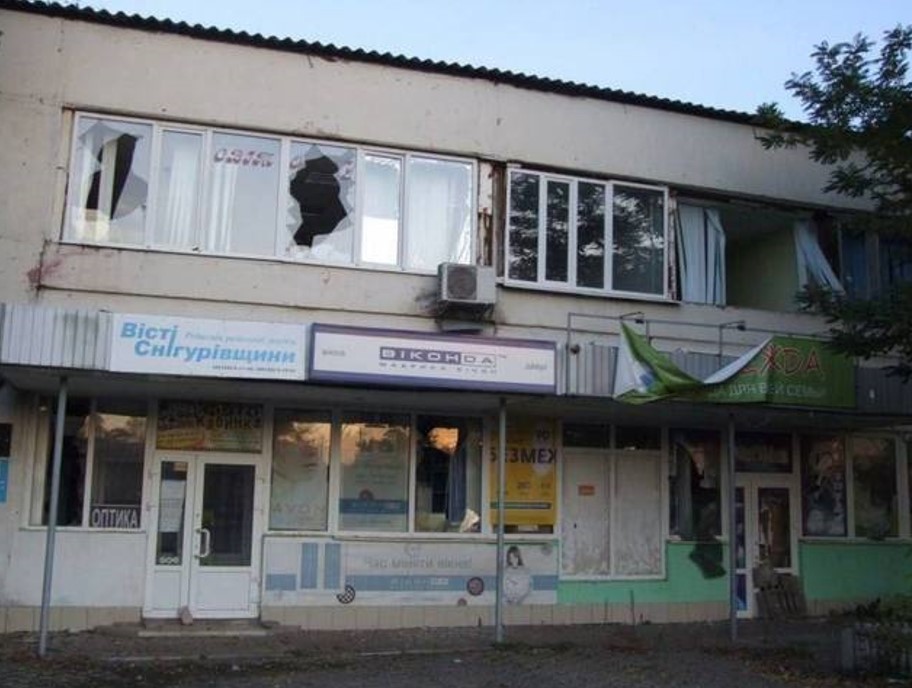
“They Cut the Boiler, Took the Washing Machine, Refrigerator, and TV”
In Snihurivka, many offices and homes of those who left the town were unfortunate.
— In the first days, the invaders broke doors in stores and pharmacies, took what they wanted, and left the rest for local looters. From some houses, the occupiers took all household appliances, clothes of local residents, and even screws from cellars. In the case of my acquaintances, they cut out and took the boiler, as well as the washing machine, refrigerator, and TV, — the journalist shared.
Local looters assisted the occupiers in looting offices and abandoned buildings.
— There were quite a few of them. In the majority, they were marginal individuals, but there were also people previously considered decent among them. They say russian troops gave them the green light to sell the stolen goods on the black market. Unfortunately, there were blatant collaborators in the area, like the deputy head of our Bashchanska district council, the former mayor of Snihurivka, and some others. They fled with the russians. This former mayor worked as a farmer in recent years, and he was the only one the russians allowed to harvest. The rest of the farmers had to silently watch what they had grown perish. Some fields were simply burned, — Valentyna explained.
Currently, the Security Service of Ukraine is identifying individuals who collaborated with the occupiers and engaged in looting.
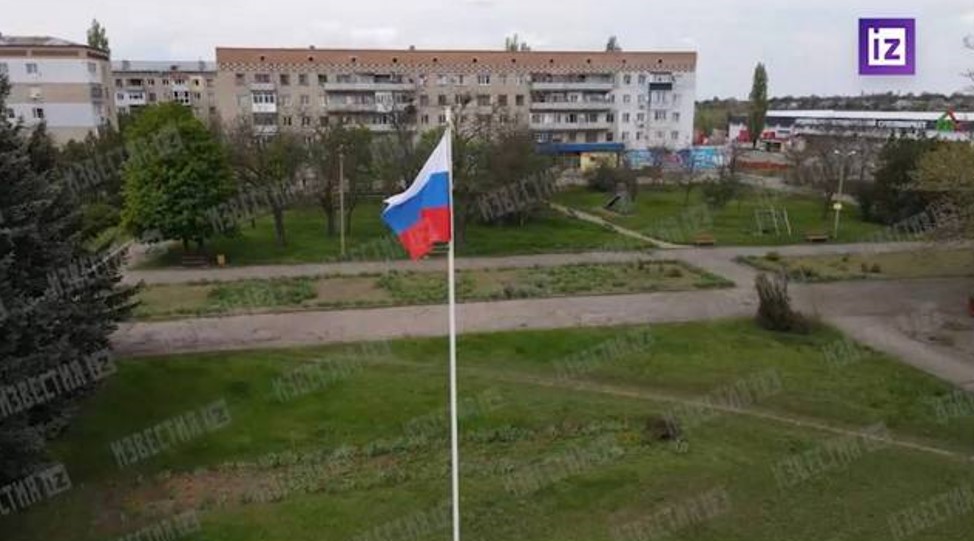
“They Poured Cologne on His Hair and Set It on Fire…”
Initially, the occupiers were somewhat tolerant of the Ukrainian language spoken by the locals. They might have leniently suggested, «speak russian.” Ukrainians responded that it was not they who came to the russians but the other way around. Later, the occupiers began to press people much more forcefully.
According to Valentyna Sokolovska, the occupation regime became increasingly harsh month by month. If initially there could be some dialogue with the occupiers, towards the end, apart from threats and insults, no one heard anything from them.
Valentyna’s elder brother, Viktor Dmytryk, a retired history teacher living in the nearby village of Pavlivka, experienced intrusion when they took away people’s cars. However, along with the car, they inexplicably took its owner.
— They took my brother to another nearby village – Vasylivka, and there, without explaining anything, kept him in the basement for a whole day… Just the same, without explaining anything, they let him go, and even returned the car. However, Viktor didn’t rejoice for long; in a week, they came again and took the car once and for all, — Valentina recounted. — In general, there was some horror with cars. If at the beginning of the occupation, you could at least go somewhere, by the end, they took every car they saw, so everyone walked or rode bicycles.
Incidents didn’t only involve cars. One acquaintance of the journalist, a 45-year-old woman, was taken all the way to Kherson, where they held her for several days, and then let her go home on foot.
Valentyna’s husband’s acquaintance, Valeriy Viktorovych, while searching for mobile signal spots, was questioned about whom and what he was “reporting” to. Initially released, after some time, they came to his house, tied the owner, started shooting, and eventually poured cologne on his hair and set it on fire. Burn marks remained on his head.
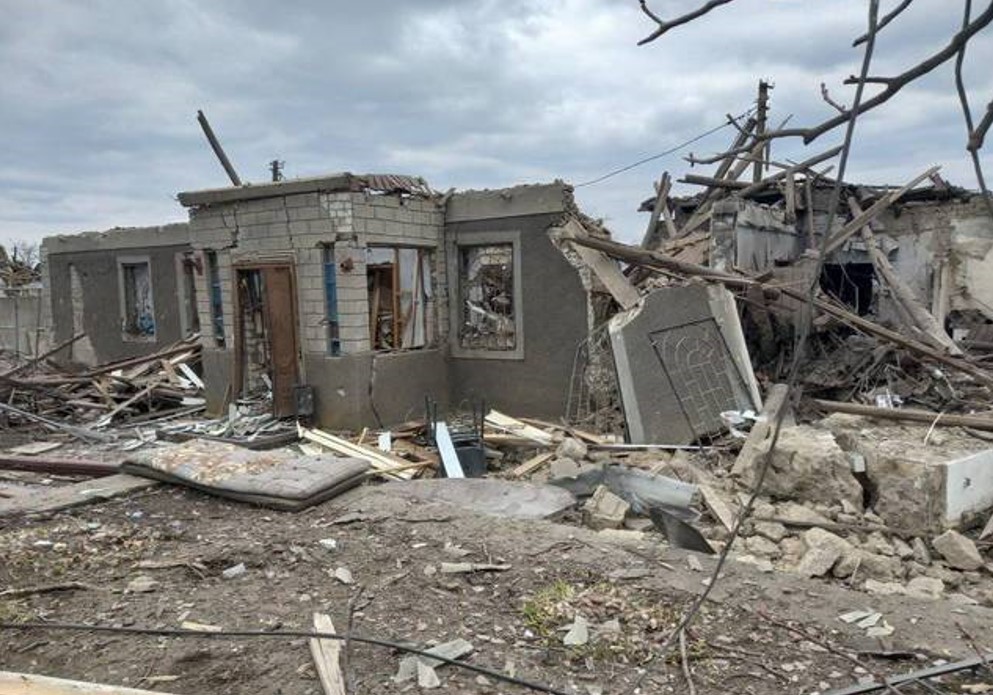
Access to medical help was severely limited during the occupation. While some doctors continued consultations for a few months, the Russians demanded their cooperation. Those unwilling to collaborate relocated to free Ukrainian territory. Medical assistance had to be sought in Kherson. Emergency services operated, but without communication, quick calls were impossible. To request assistance, someone had to go to the emergency station on foot or by bicycle. Pharmacies were shut, and locals had to buy medicine from Kherson at significantly higher prices than pre-war.
— However, not only medications were expensive. Everything was. All the products were russian. We bought sugar for UAH 70-75 per kilogram! The day before yesterday, a store opened, and sugar is now sold for UAH 35. For us, this is like a fantasy, — Valentina said.
There has been no electricity in Snihurivka since spring. Therefore, people had to forget about refrigerators in the summer and modern heating boilers in the winter. Those who had old appliances that worked without electricity were lucky.
Moreover, without electricity, there is no television or internet. Despite the front being just a few kilometers away from Snihurivka during all months of occupation, the town knew nothing about what was happening outside. Those with battery-powered radios became sources of information for their relatives, neighbors, and people in the local market.
“Husband Returned from the Market in High Spirits: ‘Valya, the Occupiers Are Gone!'”
— Since we didn’t know the situation on the front, we thought we would winter with the ‘orcs.’ Moreover, information spread in the town that we would be forcibly evicted to Kazan, — the journalist said. — Especially such talks intensified after the so-called ‘referendum.’
Valentyna Sokolovska discovered through media reports that in some southern Ukrainian areas, occupiers compelled people to polling stations or went armed with urns door-to-door. In Snihurivka, there was no widespread voting (only collaborators participated), and the results were fabricated.
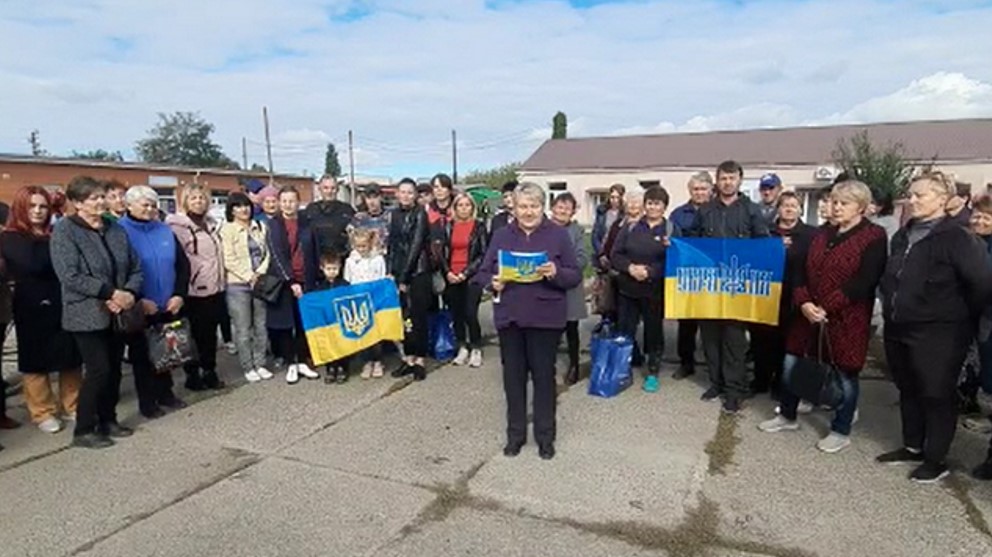
In Snihurivka, just a day before the liberation, locals speculated about the impending offensive, envisioning street battles. Little did they expect the friendly nature of the liberation, despite some serious artillery skirmishes in the last two days. On November 8, the journalist and her husband enjoyed a peaceful and restful sleep, a stark contrast to the troubled sleep during the occupation.
After breakfast, Valentyna Sokolovska’s husband went to the market – this place, as in ancient times, became the main source of news for Snihurivka. In just half an hour, Volodymyr Fedorovych returned in an extremely uplifted mood: — Valya, you know, the occupiers are gone! They’re nowhere – neither in the town nor in the neighboring villages! Could this be liberation? — the man said excitedly.
The entire town hopped on bicycles and started riding through the streets, looking for the occupiers. And they couldn’t find them!
— We took our phones and went to the river, where there was mobile signal, to call our children. The kids – in joyful tears: ‘Yes, Mom, Dad! Everywhere on the internet, they write that your ‘liberators’ have fled! You are free!’ – the journalist recalls. — But we couldn’t believe it until November 10 when we saw our soldiers. Ukrainian flags appeared from somewhere, people rejoiced, laughed, sang patriotic songs. They remembered how during the occupation, someone raised the blue-yellow flag on the mobile communication tower three times. The first time in mid-summer, the second time on Independence Day, and the third time before the liberation. The first two times, the occupiers climbed up to remove them, and the third time, they simply knocked down the tower.
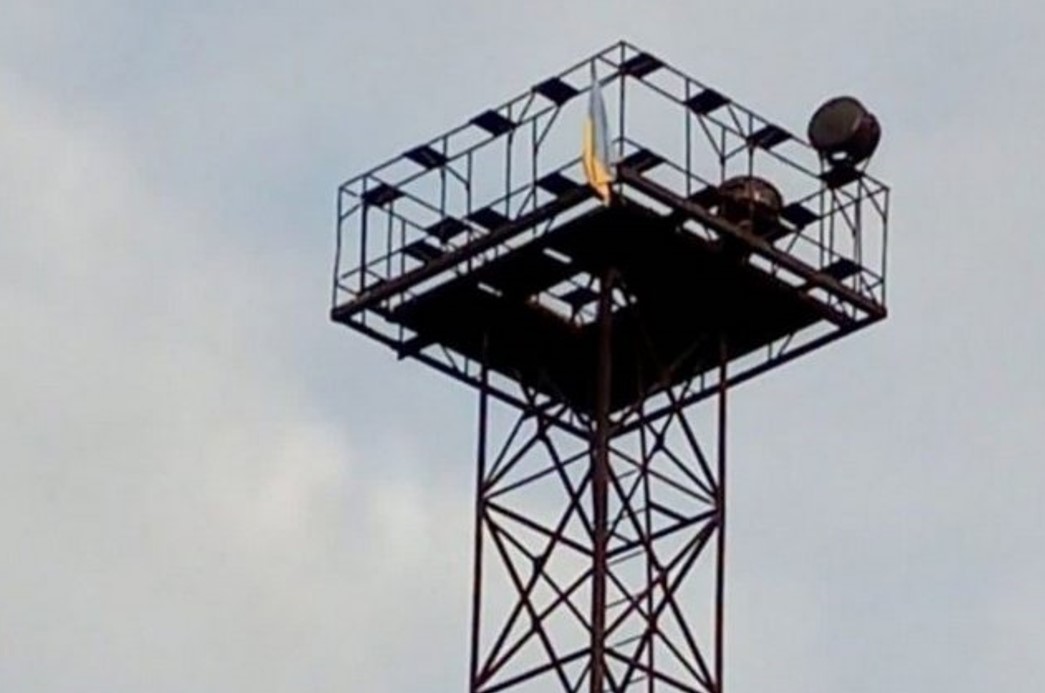
The youth, which had behaved quite boldly even before, was especially happy about the liberation. On Independence Day, they were not afraid to sing the Ukrainian anthem.
— Today life begins to return to our town. Humanitarian aid is being brought in, some stores have opened. A fresh issue of our newspaper ‘Visti Snihurivshchyny’ with my article about the experiences during the occupation has been released in the town, — the journalist shares.
During the occupation, Valentyna kept a diary, recording the most dramatic episodes so that the memory of them would not be forgotten and would not be erased for future generations.
Valentyna Yaroslavivna hopes that everything will finally fall into place in Snihurivka, especially that the publication of “Visti Snihurivshchyny” will be restored, and the main theme of its issues will be not war but the restoration of the town and the villages in the community.
— I hope that joy will come to other Ukrainian towns soon. We have relatives in Melitopol. God willing, they will be liberated too. They have been suffering even longer than us. We await Victory and believe in it! — Valentina Sokolovska says.
This series, titled Shot Freedom of Speech, is created as part of a project Drawing Ukrainian And International Audience’s Attention To Serious Violations Of Human Rights And Crimes Against Journalists And Mass Media By The Russian Federation, which is performed by the National Union of Journalists of Ukraine, with support from the Swedish non-profit organization Civil Rights Defenders.
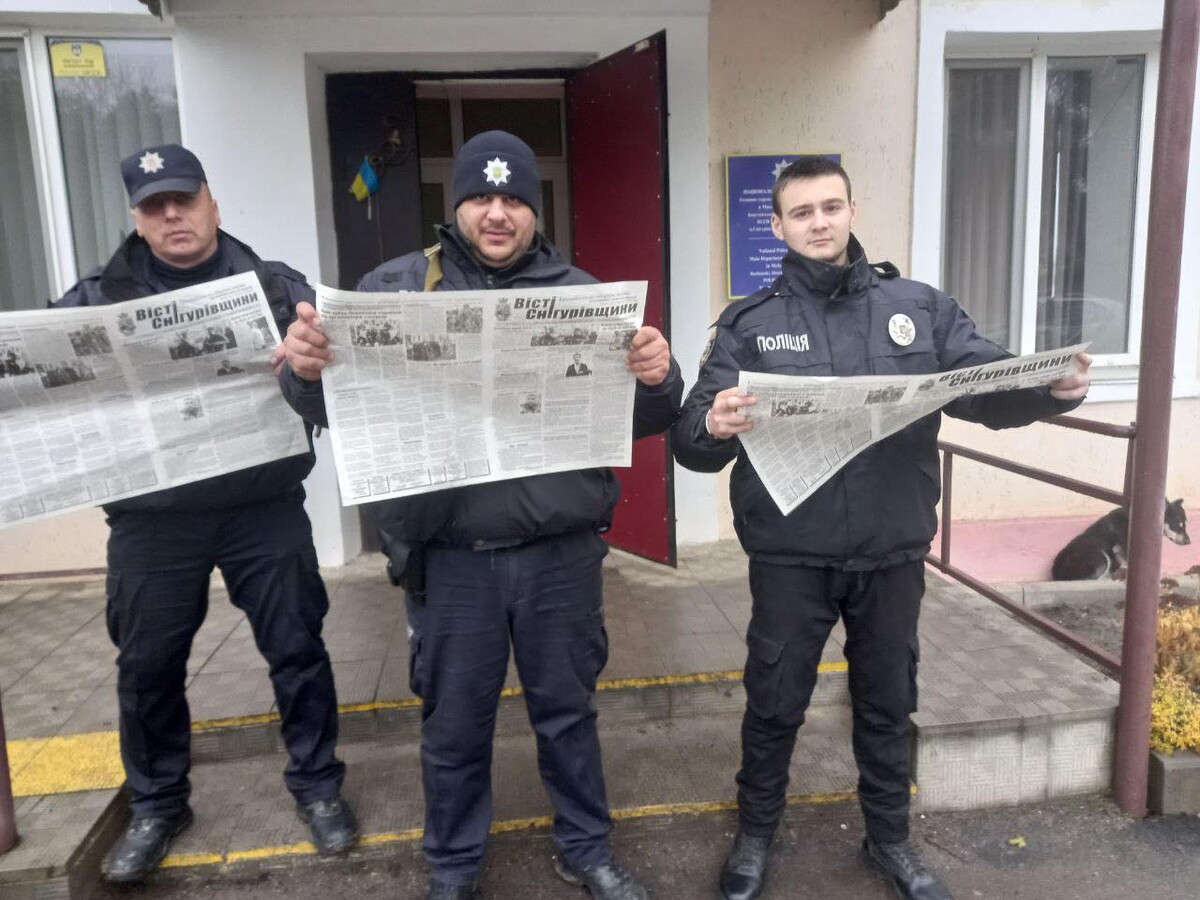
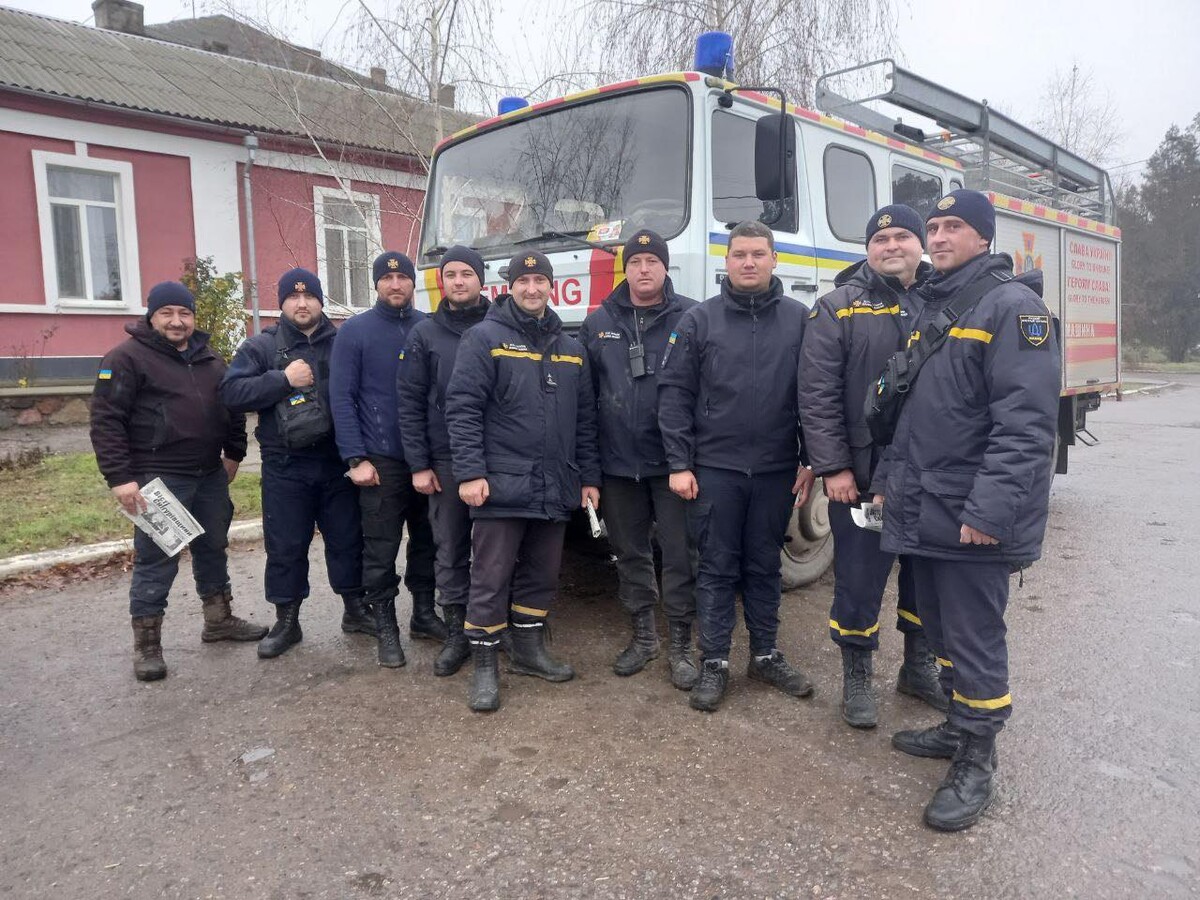
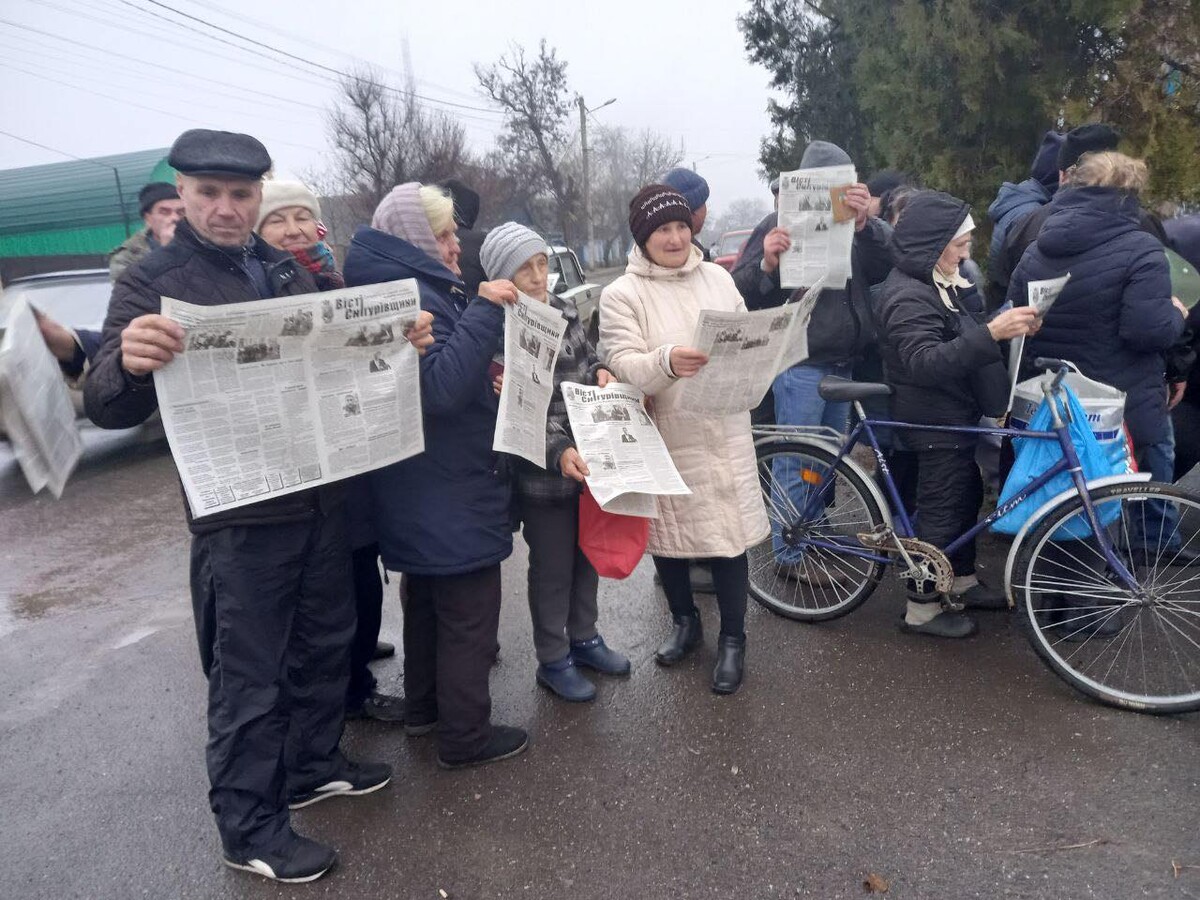
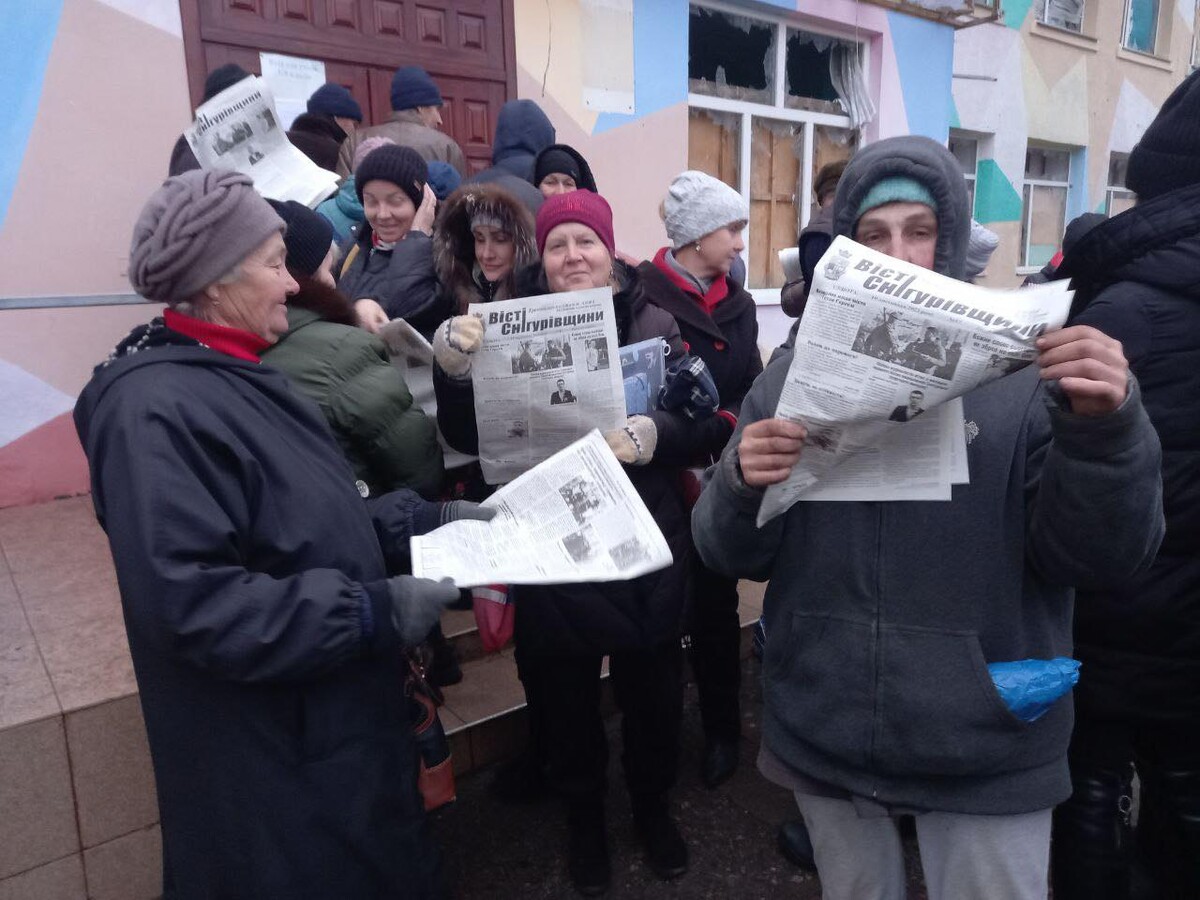
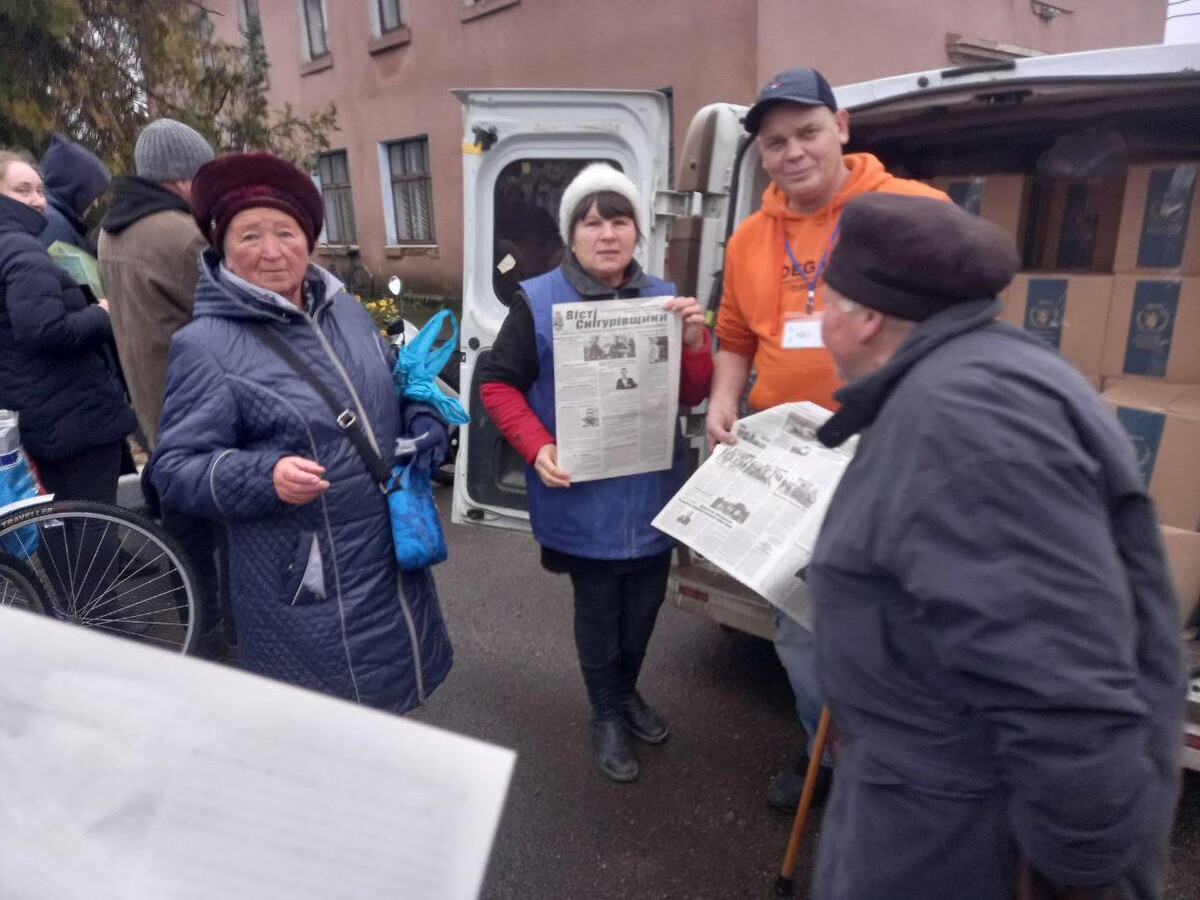
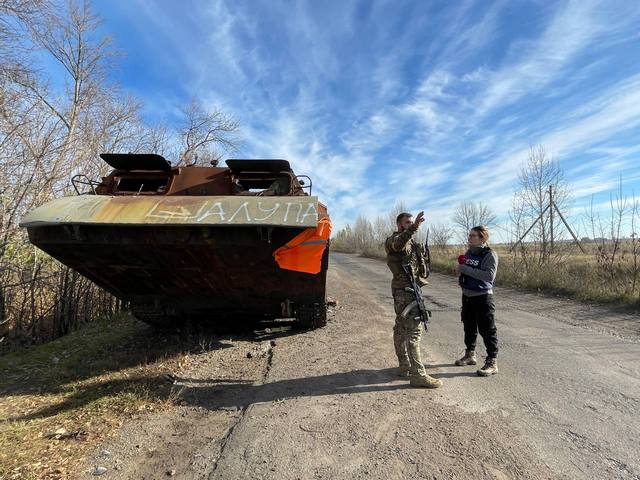
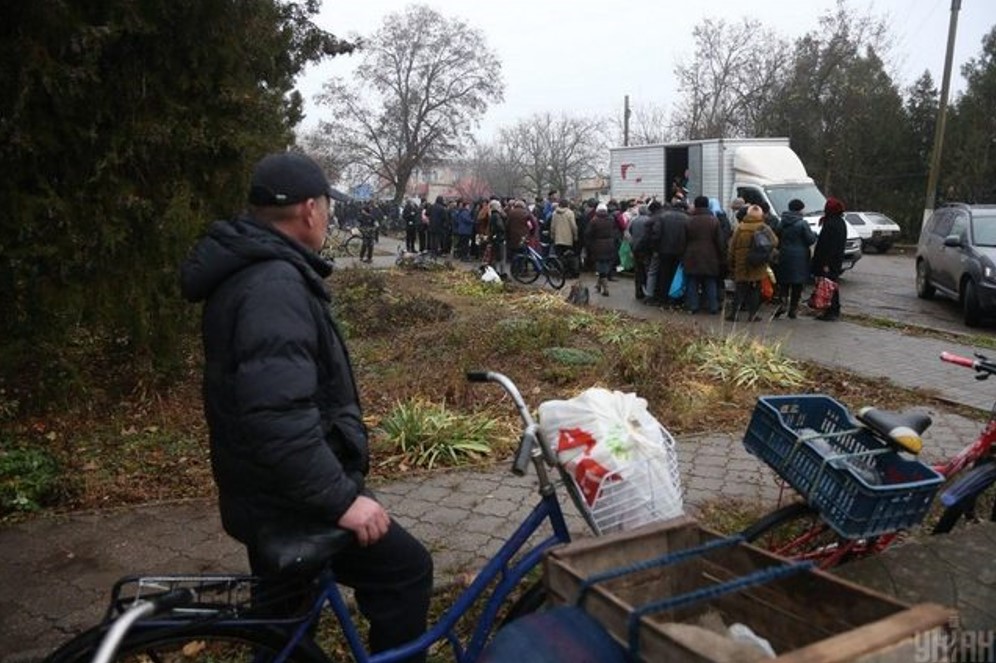
JOURNALISTS ARE IMPORTANT. Stories of Life and Work in Conditions of War is a cycle of materials prepared by the team of the NUJU with the support of the Swedish human rights organization Civil Rights Defenders.
#CRD

 THE NATIONAL UNION OF
JOURNALISTS OF UKRAINE
THE NATIONAL UNION OF
JOURNALISTS OF UKRAINE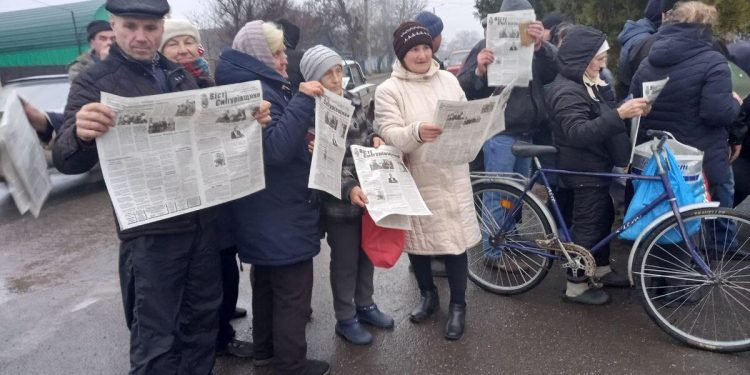
















Discussion about this post